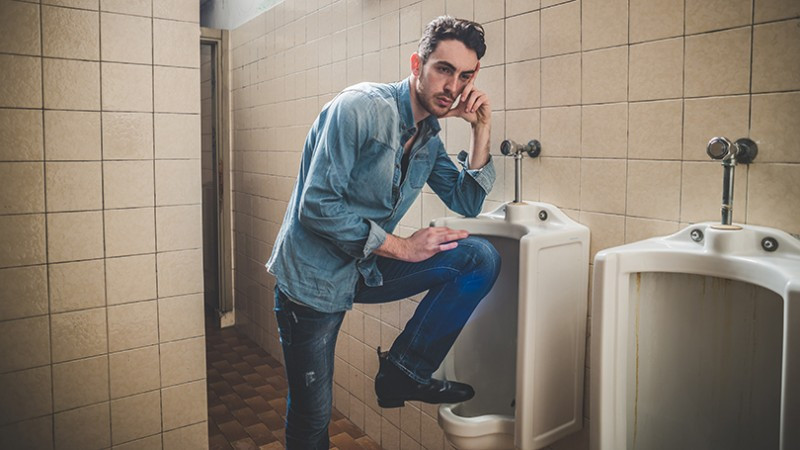Constipation is a condition that many of you are, unfortunately, familiar with. Maybe it helps to know that you have plenty of company. It is reported that about 20 percent of Americans have been affected by constipation, with women more likely to become constipated, a condition typically accompanied by abdominal bloating and discomfort, even pain, when passing stools. It is generally considered abnormal if you have three or fewer bowel movements a week, which seems to be the tipping point for determining if you are constipated or not. It's not just the infrequency of passing stools that is a sign of constipation, but also that the stools themselves. When constipated, your stools usually are hard and difficult to pass, which can mean excess time on the toilet straining to expel the waste as it moves through your digestive tract. That's why over-the-counter (OTC) stool softeners are often suggested as an effective home remedy. Some of the stool softeners available in your local store include Colace and Docusate. Another one is Surfak. Stool softeners work by drawing water from the intestines in the digestive tract, a process that works to moisten the stool, thus making it easier to pass. Dehydration and/or a diet that doesn't contain much fiber can be causes for constipation, with more serious cases of constipation linked to stress, hormonal changes, spinal injuries, muscle problems, cancers, and structural issues related to the digestive tract, per healthline.com. Other OTC constipation treatments useful on at least a short-term basis, per National Institutes of Health (NIH), include:
- Fiber supplements, such as Metamucil or FiberCon
- Osmotic agents, such as Milk of Magnesia or Miralax
- Lubricants, such as mineral oil
- Stimulants, such as Correctol or Dulcolax
Staying Hydrated/Ingesting Fiber
Perhaps the best way to treat constipation is to prevent getting it in the first place. First, drink plenty of water on a daily basis – stay hydrated. It helps keeps your bowels moving. Hydration isn't just for jocks or weekend warriors, either. Water is for regular use by you and me, with eight 8-ounce glasses or cups of water a day considered the norm for proper hydration. Per medicalnewstoday.com, some studies have found that people with chronic idiopathic constipation (CIC) or irritable bowel syndrome (IBS) might benefit more from drinking sparkling water than tap water when it comes to relieving constipation. Step No. 2: Make sure your diet has plenty of fiber in it. Fiber ingestion in believed to enhance the bulk and consistency of bowel movements, rendering them easier to pass. Per medicalnewstoday.com, this intake of fiber need not only come from what you eat (foods high in fiber include oats, whole-grain bread or cereal, fibrous fruits and vegetables, rice, beans, garlic, onions, bananas, lentils, and peas) but also through fiber supplements. Be sure to help wash them down with plenty of . . . water, of course. Soft drinks won't help with constipation. It's even been reported that 77 percent of those beset with chronic constipation were helped by supplementing with fiber. The amount of fiber recommended daily for women is 25 grams of fiber, while for men it is 38 grams of fiber. Note: If you have chronic idiopathic constipation (CIC) or irritable bowel syndrome (IBS), it would be best to consume foods with soluble fiber because insoluble fiber can make the problem worse. Insoluble fibers, found in veggies and whole grains, add bulk to your stool and are believed to help your stools pass more quickly and efficiently, while soluble fibers (oat bran, nuts, beans, etc.) absorb water and form a gel-like paste, per medicalnewsroday.com, that can soften the stool and improve consistency.Other Ways to Treat Constipation
If you want to know more about treating or preventing constipation, you are best advised to consult with your physician. Some of the other treatments worth a spot in such a discussion can include:- Light exercise: Think walking or jogging, which can stimulate bowel movements by enhancing the flow of blood throughout your abdomen, per healthline.com. One recent study showed light exercise especially helpful for constipated people who have IBS.
- Laxatives: Some were listed earlier, and there are different types. Osmotic laxatives, such as Milk of Magnesia and MiraLax, help move fluids through the colon. Lubricant laxatives, such as mineral oil, per healthline.com, add a slick coating to the walls of your intestines, allowing easier movement of your stool though the colon. There's even generic senokot, a natural vegetable laxative that can provide gentle, safe bowel stimulation
- Manage stress. Self-explanatory.
- Enema or suppository. These are more of a last resort, but both are inserted into the rectum and are designed to help soften the stool. You might need assistance from another person in using the enema.
- Footstool: Place in front of your toilet and put your feet on it, which puts you in a squatting vs. seating position, making it easier to pass your stools.
- Glucomannan. This is a supplement, a soluble fiber shown quite effective for treatment of children with constipation.
- Prunes. Prune juice, too. Prunes contain a sugar alcohol called sorbitol, a natural laxative.

